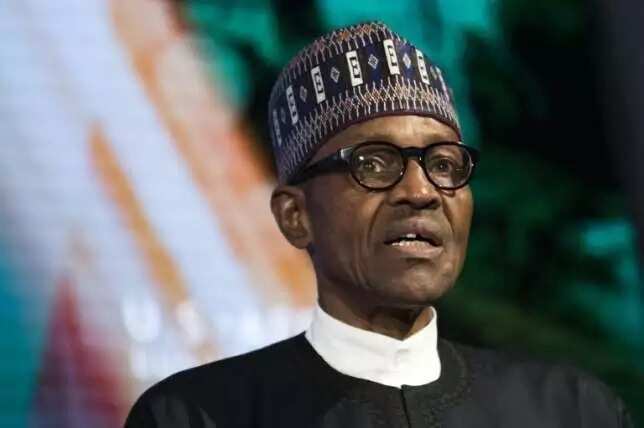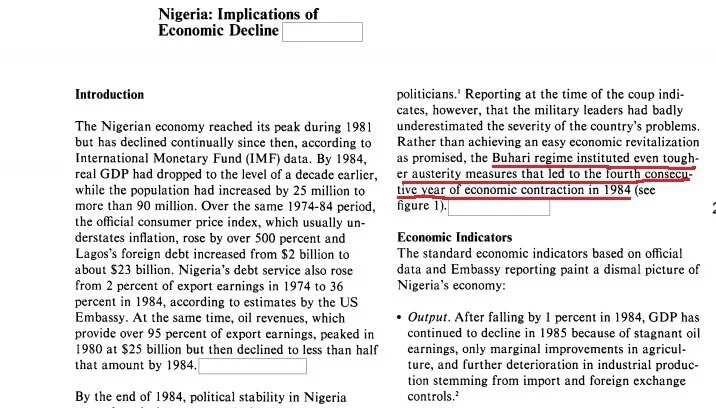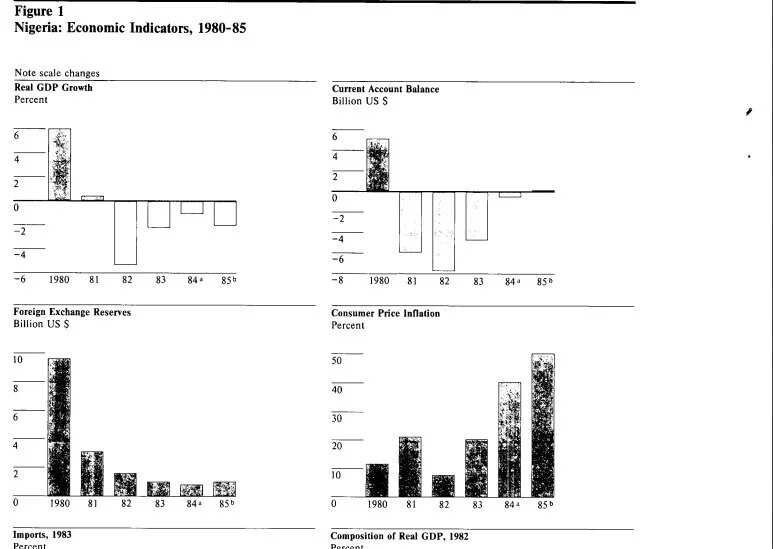Declassified CIA file reveal severe economic decline when Buhari took power in 1983
A declassified Central Intelligence Agency (CIA) report has revealed how the Nigerian economy practically collapsed when President Muhammadu Buhari came into power as a military president in 1983.

The young Buhari alongside his allies in the military had toppled the democratically elected government of Alhaji Shehu Shagari in a bloodless coup.
The CIA files revealed that the Nigerian economy reached its peak in 1981 but steadily declined under Buhari's watch from 1983.
''By 1984, real GDP had dropped to the level of a decade earlier, while the population had increased by 25 million to more than 90 million,'' the report stated.

READ ALSO: CIA secret files predicted former president Shehu Shagari will be overthrown by coup in 1983 (See documents)
Under General Buhari's watch, the official consumer price index, which usually understates inflation, rose by over 500% and Nigeria's foreign debt increased from $2billion to about $23billion.
Nigeria's debt service also rose from 2 percent of export earnings in 1974 to 36 percent in 1984.
At the same time, oil revenues peaked in 1980 at $25 billion but the declined to less than half that amount by 1984.
The report said: ''By the end of 1984, political stability in Nigeria seemed as elusive as economic development.
''The current Federal Military Government (FMG), which seized power 31 December 1983, has had no more success than its civilian predecessor in reversing the economic decline.''

The report stated that the Buhari regime has concentrated on short term of foreign exchange crisis rather than on solving Nigeria's fundamental economic problems.
The 1983 situation is somewhat similar to what Nigeria is currently experienceing under President Muhammadu Buhari, now 74.
READ ALSO: Nigerian economy: 10 signs we are in recession
Nigeria officially entered recession last year for the first time in 29 years. Nigeria Bureau of Statistics (NBS) figures showed that in the gross domestic product (GDP) for the second quarter of 2016, Nigeria’s economy contracted by 2.06 percent.
Source: Legit.ng
